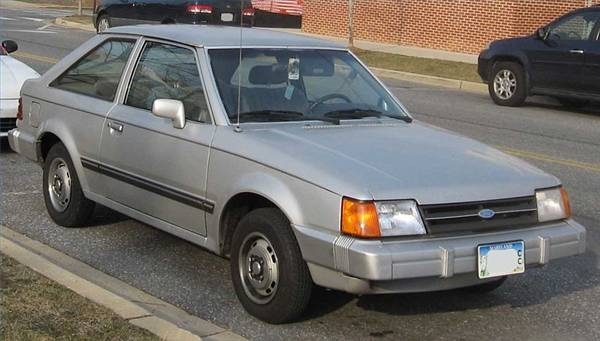
When you step on the brake pedal of your Ford Escort, the friction material on the brake pads grip the brake rotors to help you slow or stop the vehicle. After months of service, this friction material wears down to a point where you begin to hear a squealing sound every time you apply the breaks. That is the built-in alert system on your brake assembly letting you know that it is time for new brake pads. Once you have the replacements, just follow these steps to change the pads on your Escort model.
Empty half the fluid from the brake master cylinder using a hand siphon pump.
Loosen the wheel lugs on the front wheels using a lug wrench.
Raise the front of the vehicle using a floor jack and install two jack stands to support the car.
Remove the front tires from the wheel assemblies.
Pay careful attention to how the two spring wires are mounted on top of the brake caliper and holding the two brake pads in place. Then disengage the wires from the caliper by hand.
Push the brake caliper cylinder into its bore using a C-clamp. Place the C-clamp between the back of the caliper and the front brake pad. Also, place a socket between the C-clamp screw and the front pad so you can reach the pad. Then screw in the C-clamp to push in the cylinder.
Remove the two brake-pad locating pins by hand from each side of the caliper top. The pins come with a hole towards one of the ends. Make sure to note which way this holes point so that you mount the pins the same way.
Remove the brake pads and shims from the brake caliper by hand.
Apply a light coat of brake pad grease to the back of the new brake pads and lay the shims on the back of the pads.
Install the brake pads and shims in the brake caliper.
Insert the two brake pad locating pins on the brake caliper.
Mount the two spring wires on the brake caliper.
Replace the brake pad set on the other front tire following steps 5 from the previous section through step 4 of this section.
Mount the tires on the wheel assemblies and screw in the wheel lugs.
Lower the vehicle and finish tightening the wheel lugs using the lug wrench.
Pump the brake pedal several times to position the new brake pads properly over the brake rotor.
Refill the brake master cylinder with new brake fluid with the level between the Low and Full marks.